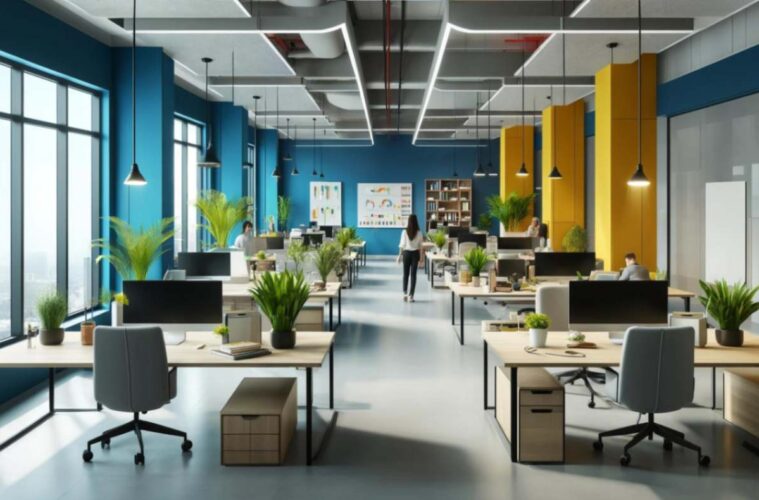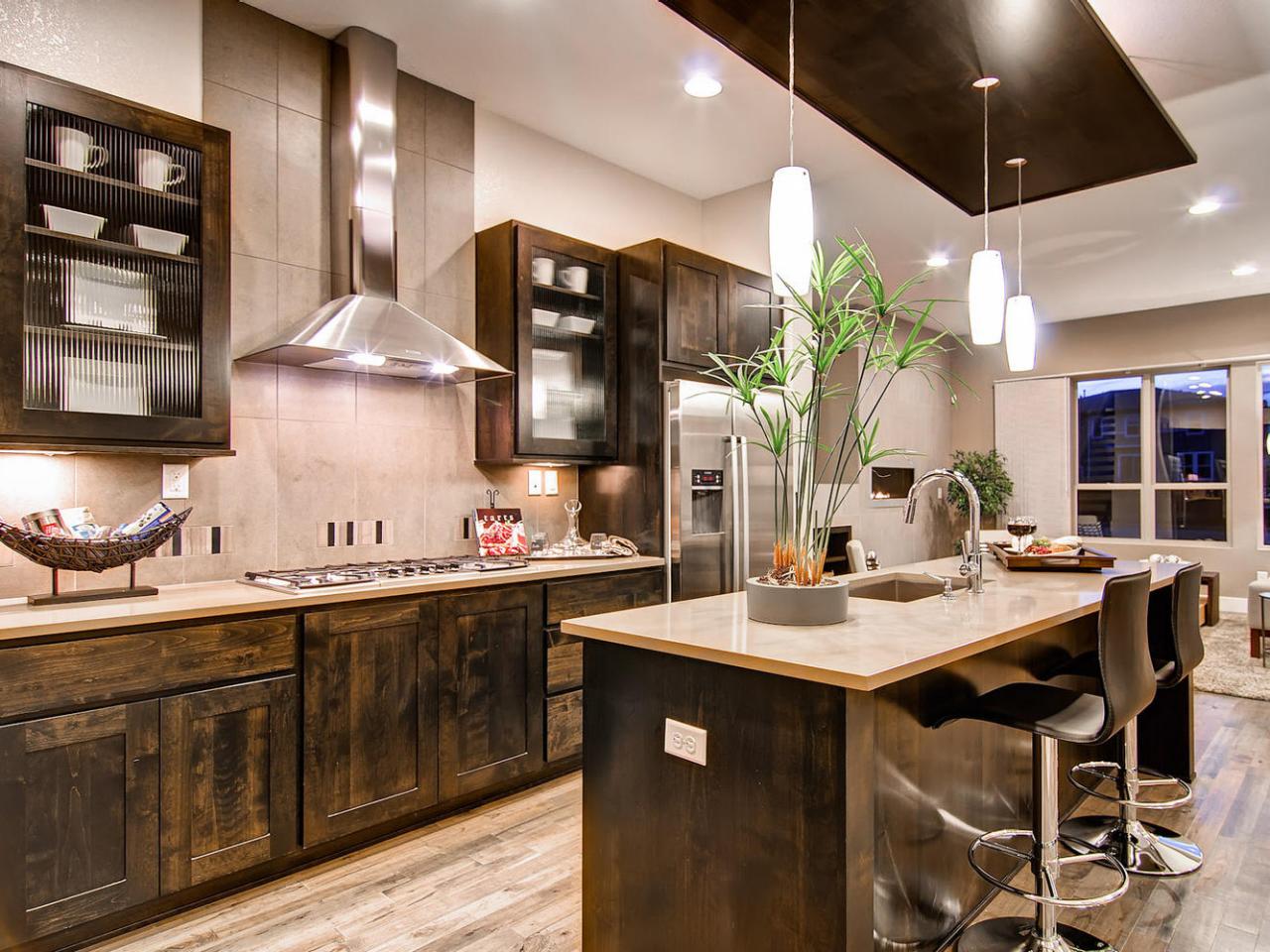To make the office a work-friendly and productive space is not only about the furniture or the design that has to be right. It will directly impact the employees’ emotions and productivity as well as the mood and concentration. If the corporate colours in selecting an office are appropriate, they will positively impact the efficiency, creativity, and comfort of the employee as well as the environment in which they work. In this article, we will see how particular colours affect productivity and how to use the appropriate shades in office interior design.
The impact of colours on productivity at work
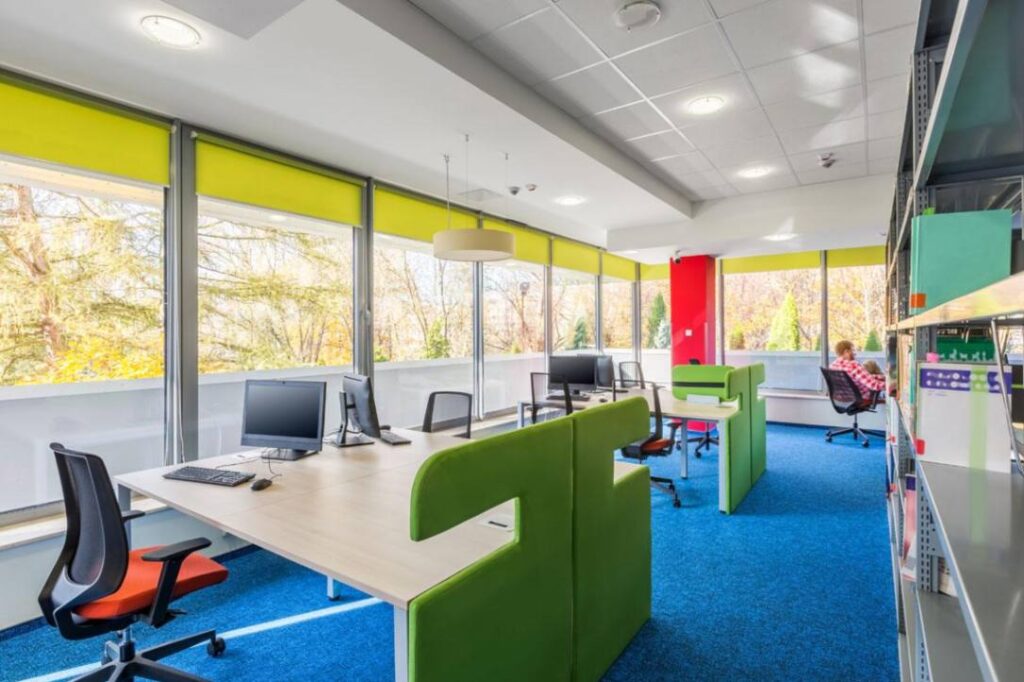
Source – quill
The psychology of colour is powerful. Each colour has its own effect on emotions and behaviour and we need to understand which shade will affect the working processes. We are going to discuss how some colors influence office culture and create a positive atmosphere.
| Colour | Impact on Productivity | Ideal Office Areas | Tips for Usage |
| Blue | Boosts your attention and calmness. | Inculcate it in Individual workspaces and focus zones | Use on walls or decor items in quiet areas |
| Yellow | Inspires creativity and positivity | Brainstorming rooms, collaboration spaces | Add in accents or wall art for energy boost |
| Green | Reduces eye strain, promotes relaxation | Break rooms, lounge areas | Integrate plants or green decor |
| Red | Increases energy and alertness | Physical activity zones, kitchens | Use sparingly in active spaces |
| White | Expands space, creates clarity | Main walls, hallways | Balance with warm accents to avoid sterility |
| Orange | Encourages enthusiasm and collaboration | Meeting rooms, high-energy areas | Use on furniture or decor in meeting rooms |
Blue: Best for Productivity and Intellectual Arousal
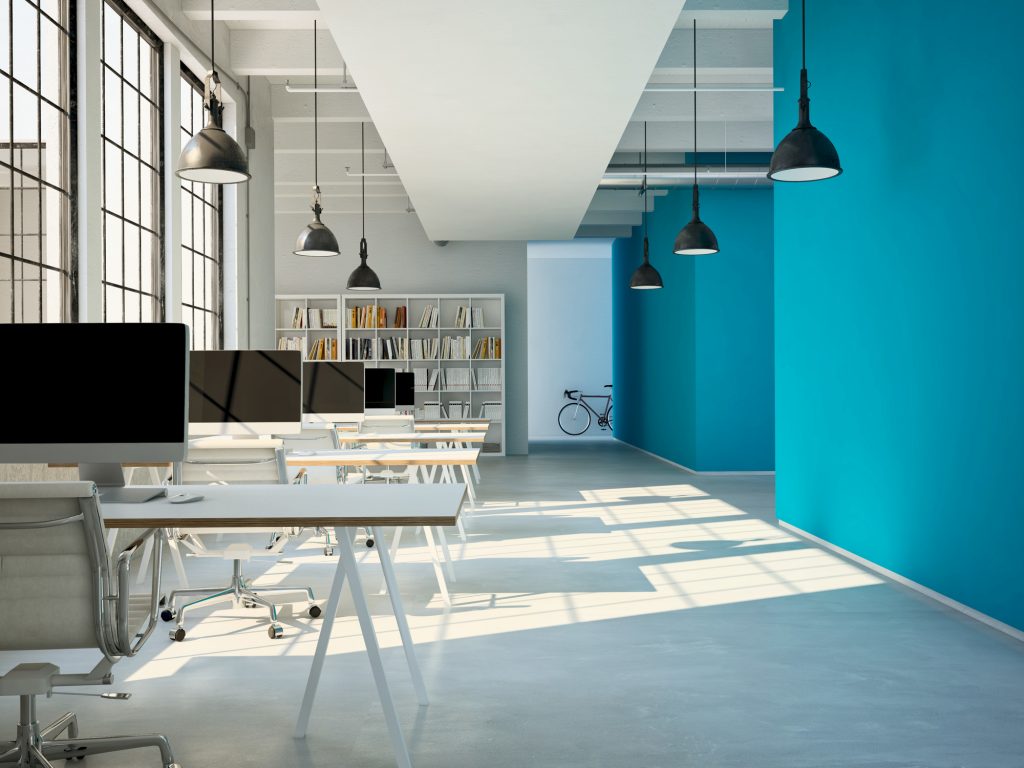
Source – genteempoderadamagazine
High concentration is often requested in offices, and keeping the people inside those walls calm, focussed, and stable; it is normal that the favorite color in offices is blue. Blue can reduce stress and give you better focus. You can add it in jobs involving numbers and detailed work, such as accounting and research.
Adding Blue: Blue would be very suitable for workspaces or meeting rooms where concentration and mental clarity are needed. Soothing light blues produce a simple, general atmosphere, while deeper blues can give a sense of solidity to a space and even give it a sense of trustworthiness.
Yellow: Energizing and Creativity-Inducing
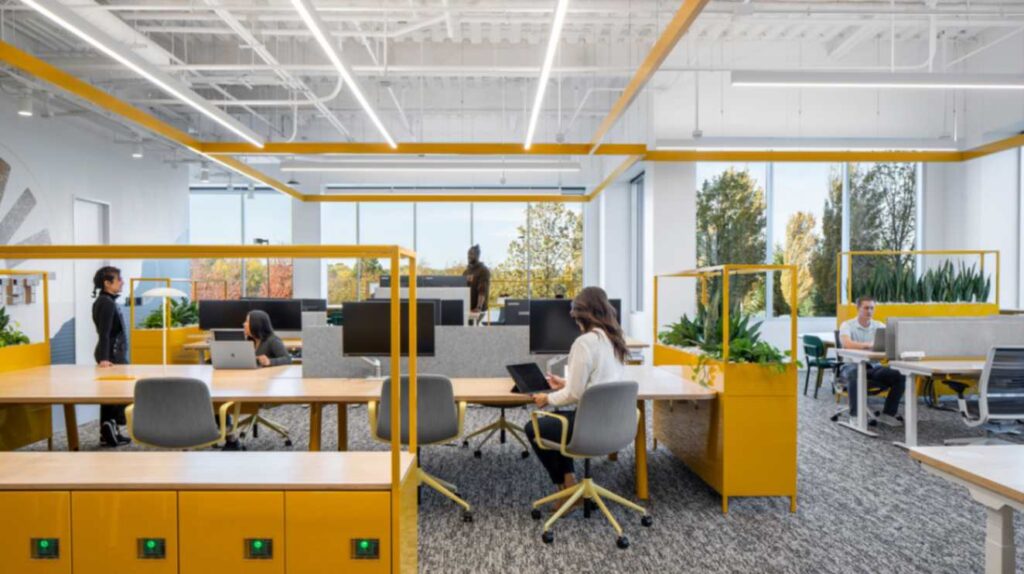
Source – static1.gensler
Radiant and vibrant yellow could brighten up an office space, making it look radiant and full of cheer, which could stimulate creativity and high energy.
Yellow colour is inspiring, helps in innovative thinking and problem solving and thus it is a colour of optimism. This colour creates warmth that helps in teamwork and openness.
Using Yellow Colour: Use yellow colour in creative or brainstorming areas as an accent colour. Use yellow colour to artwork, decor pieces and accessories like chair or stationery.
Green: Calming and Harmonious
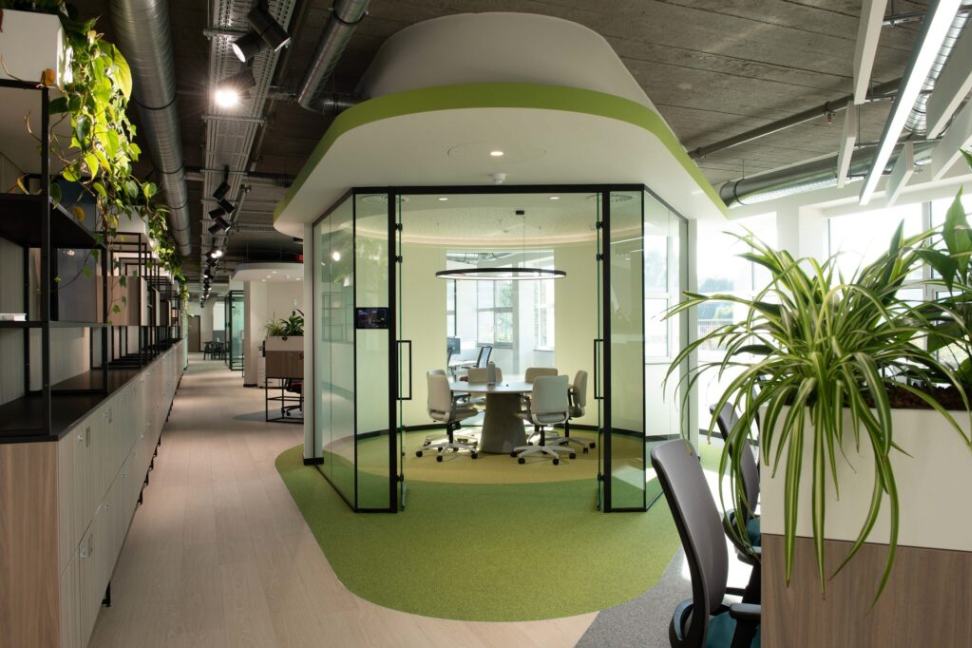
Source – fibreguard
Green is a versatile colour that brings balance and calmness into a workspace. This colour has a sense of calmness, which makes it ideal for places where people work for several hours. Green also means development, balance. It creates a relaxing environment, which contributes to alleviating stress and tiredness.
Incorporating Green: This colour is suitable for an office’s relaxation area or any break area where employees feel recharged.Adding green plants can boost the natural ambiance, providing both aesthetic appeal and mental relaxation benefits.
Red: Stimulating and Perfect for Active Spaces
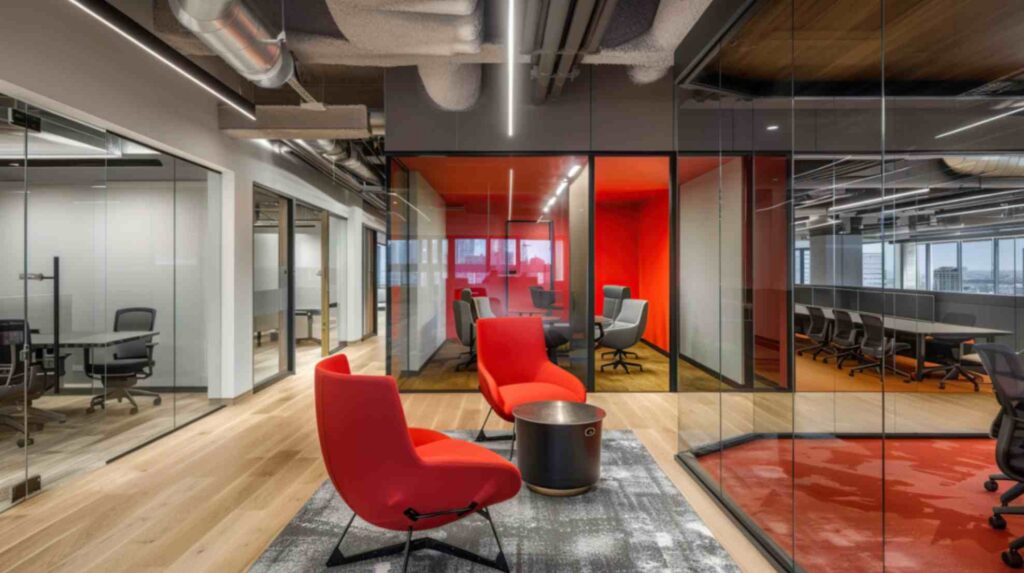
Using Red Color- Red is appropriate for industries where the workers need to be vigilant such as an assembly line, kitchen, or even a gym at the workplace. Use red accent colors on equipment or small furniture rather than large walls for stimulation without cluttering the space.
White: Clean, Simple, and Clinical
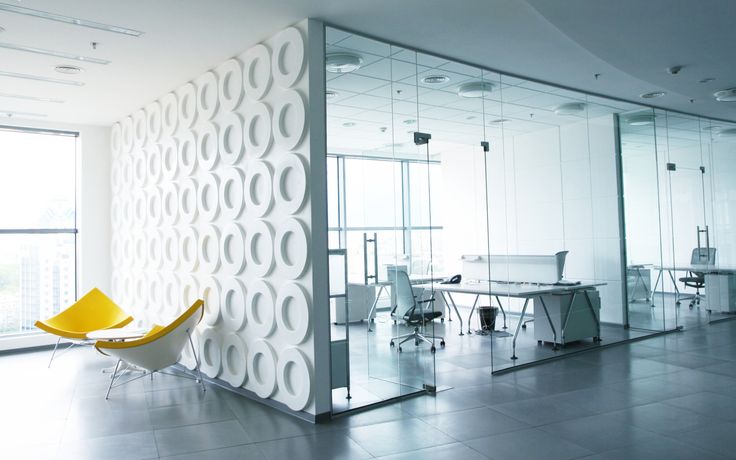
Incorporating White: White is best if applied as a base coat on walls and ceilings to enhance the look and brightness of a room.Pair white with other colours to add warmth and character, preventing a sterile or overly clinical feel.
Orange: Promoting High Energy and Productivity
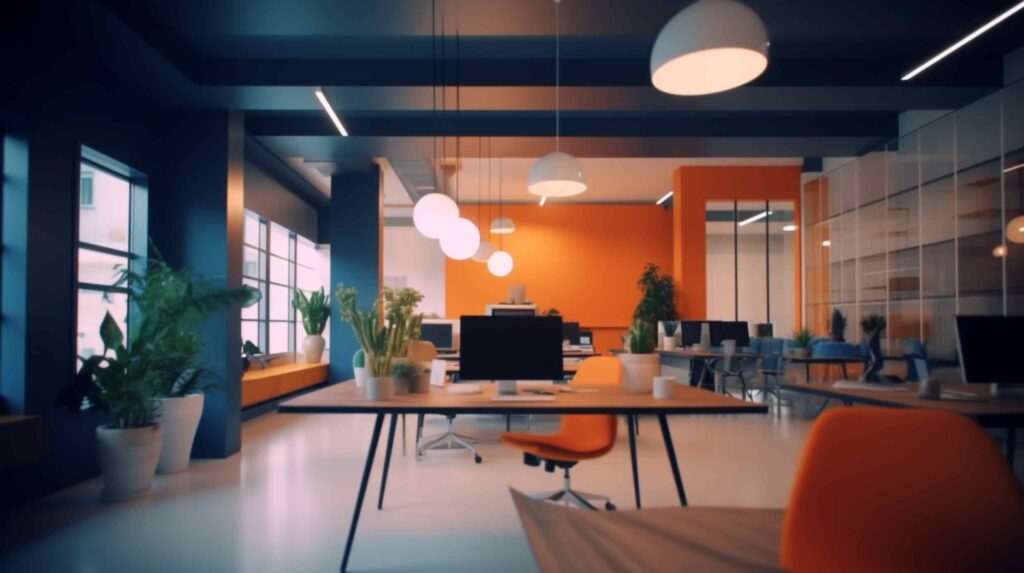
Using Orange: Orange should be applied to action-level places, such as discussion rooms whose dialogue is hot and high-energy. Orange upholstery or accent wall will warm up and become lively without overwhelming the room.
Balancing the Work environment through Colours
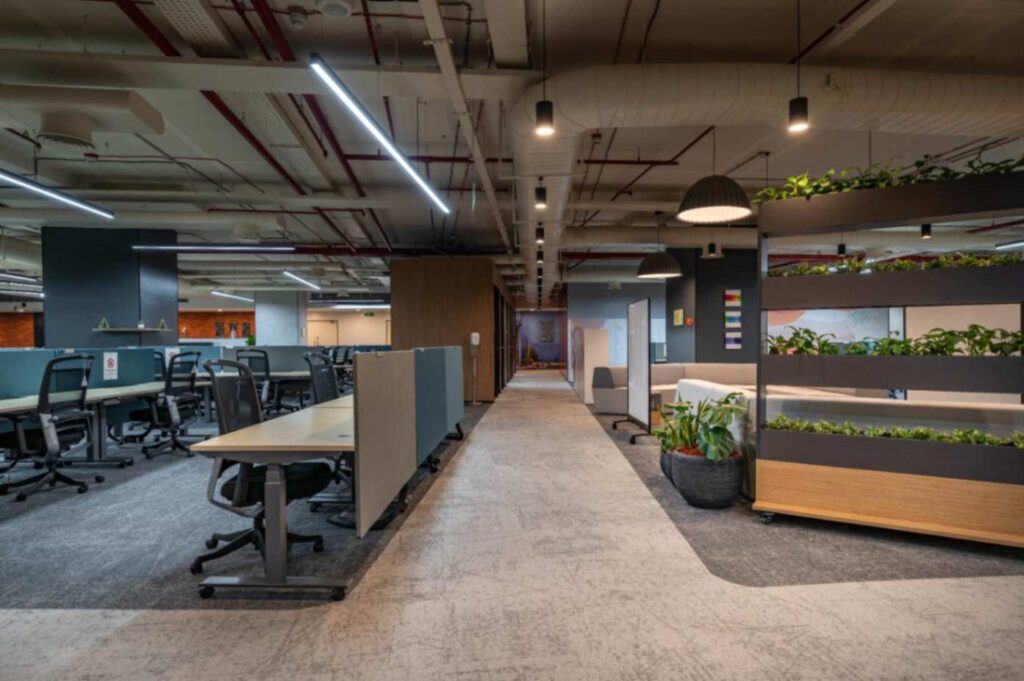
Source – blog.spacematrix
A good office color scheme would involve a few major colors and accents, creating cohesion and a feel overall. Some ideas on color blending:
Use neutral backgrounds: that is, white or light gray walls, which act as a neutral background of the dominating colours; this discourages dominating colours.
Accent walls and decor: Paint accent walls green or blue color in areas where you need to focus and produce. While making your decor items appear colorful, you should apply yellow or orange-colored objects to give it more energy without overwhelming the space.
Natural Elements with Green: Plants and natural greenery grace office spaces well. Not only will green enhance the ambiance of a room as calm and positive, but real plants will also clean the air indoors for you.
Layer Colours Based on Work Zones: Ensure that your office can be divided into zones based on certain activities and that colors are used to define them. For instance, blue colors are the most soothing for areas meant for focused work, while orange or red ones represent collaborative spaces or meeting rooms.
Conclusion- Color, a tool to Inspire and Motivate
Colour psychology is very effective to simplify work and support a positive environment at work. When applied with the right intention, colours can improve productivity, innovation, and employee satisfaction. Selecting the right colours can help to make your environment productive and friendly and, thus improve the well-being of the employees and their performance in the office.

